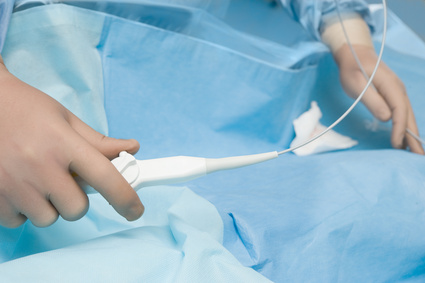The ADVANCE study was designed to evaluate the safety and effectiveness of transcatheter aortic valve replacement (TAVR) with self-expanding prosthesis CoreValve in “real world” patients with symptomatic, severe aortic stenosis at high surgical risk.
Patients were enrolled from 44 experimental centers in 12 countries; treatment approach and choice of anaesthesia were determined by the local Heart Team.
Read also: “2.0-mm DES for Very Small Vessels: Are They Viable?”
In total, there were 1015 patients; the mean age was 81 years old and the logistic EuroSCORE was 19.3 ± 12.3%. Five-year follow-up was available on 465 of these patients, whose rate of mortality for that period was 50.7%.
Haemodynamic measures remained consistent over time with a mean gradient of 8.8 ± 4.4 mmHg and an effective area of 1.7 ± 0.4 cm².
Moderate to severe paravalvular aortic regurgitation decreased from 12.8% at the time of implantation to 8.0% at 5 years.
Read also: “Effects of Cerebral Radiation on Interventional Cardiologists”.
Of the 860 patients with echocardiographic data, there were 22 (2.6%) patients who met the VARC-2 criteria for valve dysfunction and 10 (1.2%) patients who required a reintervention.
Conclusion
The 5-year follow-up of a “real-world” high-risk population who underwent transcatheter aortic valve replacement with self-expanding prosthesis CoreValve provided clear evidence for valve durability with low rates of reintervention and prosthesis dysfunction.
Editorial
The 5-year results from ADVANCE continue to demonstrate the haemodynamic performance of the CoreValve bioprosthesis, as well as low rates of stroke, paravalvular aortic regurgitation, and a high mortality rate that is still within the expected range for this population.
All-cause mortality for patients in the CoreValve ADVANCE study was 50.7% at 5 years vs. 67.8% for patients in the PARTNER 1 trial over the same time period. While both populations presented high surgical risk, it was even higher for PARTNER 1 patients (Society of Thoracic Surgeons [STS] score of 10.7 ± 3.5% for PARTNER 1 vs. 6.4 ± 4.4% for ADVANCE), which might explain the difference in mortality.
Original title: Final 5-Year Clinical and Echocardiographic Results for Treatment of Severe Aortic Stenosis with a Self-Expanding Bioprosthesis from the ADVANCE Study.
Reference: Ulrich Gerckens et al. Eur Heart J. 2017 Sep 21;38(36):2729-2738.
Subscribe to our weekly newsletter
Get the latest scientific articles on interventional cardiology
We are interested in your opinion. Please, leave your comments, thoughts, questions, etc., below. They will be most welcome.



